Observations from 10,000 Feet
Published on June 18th, 2018
Having events where the spotlight beams brighter creates excitement and galvanizes a region. For the Pacific Northwest, it has been Whidbey Island Race Week but lengthy destination events have been struggling, and WIRW is no exception.
When Schelleen Rathkopf and her then-husband Charley purchased Whidbey Island Race Week, aka The Adult Summer Camp, the event had struggled through different owners and managers. After running the show now for three editions, Schelleen continues the battle.
Here she shares her view on the sport’s landscape:
Participation is down nationally (internationally). It’s an expensive, time consuming sport. And there is a huge learning curve required to be successful (for those wanting to be on the podium). There are more demands on people’s time than ever.
My gut tells me that people still want to sail, but possibly not at the same level of intensity. And I think as a whole, the sport targets a very specific demographic and people age out of that demographic, start families, and priorities change.
I also think that boats are super expensive and require seasoned crew and “keeping up with the Joneses” when it comes to boats is daunting for many and frustration happens when the same boats win over and over and over again.
There’s been a lot of debate around ORC, PHRF and handicap scoring systems as we all try and make things as easy and accessible and fair for racers in a sport that is full of rules and regulations governed by the RRS that already can make things fairly complicated and intimidating for the new racers to break in.
This “keeping up with the Joneses” thing is really interesting as we look at one design fleets that come/go. I can still remember the days when the Olson 30 fleet in Seattle was the largest fleet racing! And then there was the Nationals hosted here and almost overnight, the fleet just went away.
It was replaced by the next, sexier boat. What happened to the Farr 30s? J/80s are growing steady here but not nearly as quickly as in other cities. J/24s are solid (though they seem to prefer lake sailing).
The current sweethearts seem to be the J/105 fleet, as it’s a great boat for the PNW and there is a tight community of boat owners who know and respect each other. The fleets that seem to succeed for the long haul are those who recognize that iron sharpens iron and they’ve formed a cohesive community that encourages each other to get out and go racing.
Events that are succeeding are those that offer a fun destination experience for racers looking for something new and perhaps even some non-traditional courses that shakes up the competition and gives more skippers a chance of winning.
Much more in this interview with Kurt Hoehne on sailish.com…click here.



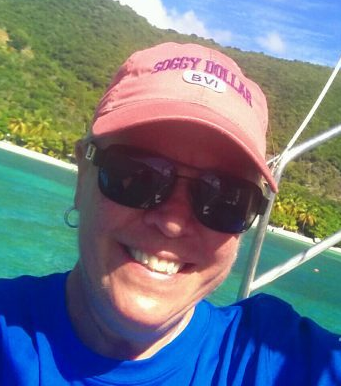


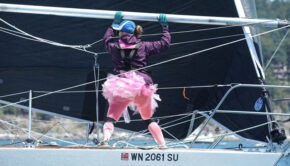
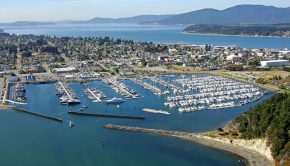
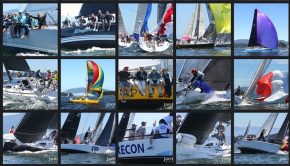
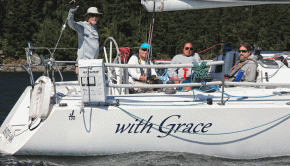
 We’ll keep your information safe.
We’ll keep your information safe.